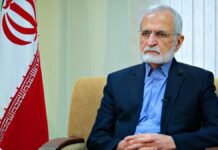
News Delhi: In the wake of the Central Election Commission’s announcement of the 2024 general elections and concurrent assembly elections in select states, the Model Code of Conduct (MCC) has been activated in New Delhi. This code plays a pivotal role in maintaining the integrity and orderliness of the electoral process.
Historical Context
The MCC’s inception dates back to the 1960 Kerala Assembly elections, marking the first attempt by the administration to establish a set of guidelines for political parties. Over the past 60 years, the MCC has undergone significant evolution, shaped by various amendments and the changing political landscape.
Definition and Purpose
The MCC is a consensus-driven set of rules endorsed by all electoral participants. Its primary goals are to ensure fair campaigning, voting, and counting processes, as well as to prevent the misuse of state resources and finances by incumbent governments. Despite lacking formal legal status, the Supreme Court has repeatedly affirmed the MCC’s legitimacy.
Enforcement and Amendments
The Election Commission holds the authority to enforce the MCC and penalize any infractions. The code becomes operational with the declaration of the election timetable and remains effective until the conclusion of the electoral process. Notable amendments to the MCC were made in 1979, 1982, 1991, and 2013, each contributing to its current form.
Key Provisions
The document titled “Role and Responsibilities of Political Parties during Elections” outlines the expected conduct of political entities and was first adopted during the 1968-69 mid-term elections. The Nirvachan Commission further refined the MCC in 1979 by monitoring the actions of ruling parties, aiming to curb any potential abuse of power.
Recommendations for Reform
In 2013, a parliamentary committee proposed granting the MCC statutory recognition to eliminate any ambiguities in the Election Commission’s enforcement capabilities. The committee also suggested several reforms, including adjusting the election expenditure limits for candidates, establishing fast-track courts for election disputes, and permitting independent MPs to affiliate with political parties within six months post-election.

Advocacy for Legalization
SY Qureshi, a former Chief Election Commissioner, advocated for the MCC’s legalization, emphasizing the need for stringent legal consequences for violations. The MCC stipulates that the party in power must refrain from leveraging its official status for campaign purposes and prohibits the announcement of financial grants during the election period.
The Model Code of Conduct stands as a testament to India’s commitment to democratic principles, ensuring a level playing field for all political contenders and safeguarding the sanctity of the electoral process.












































